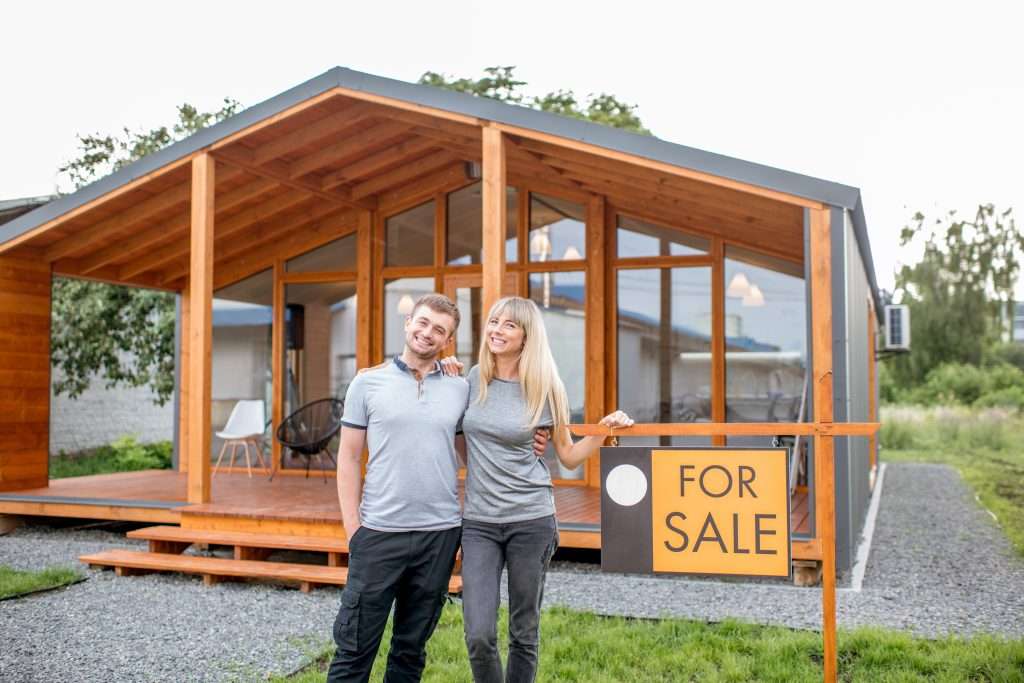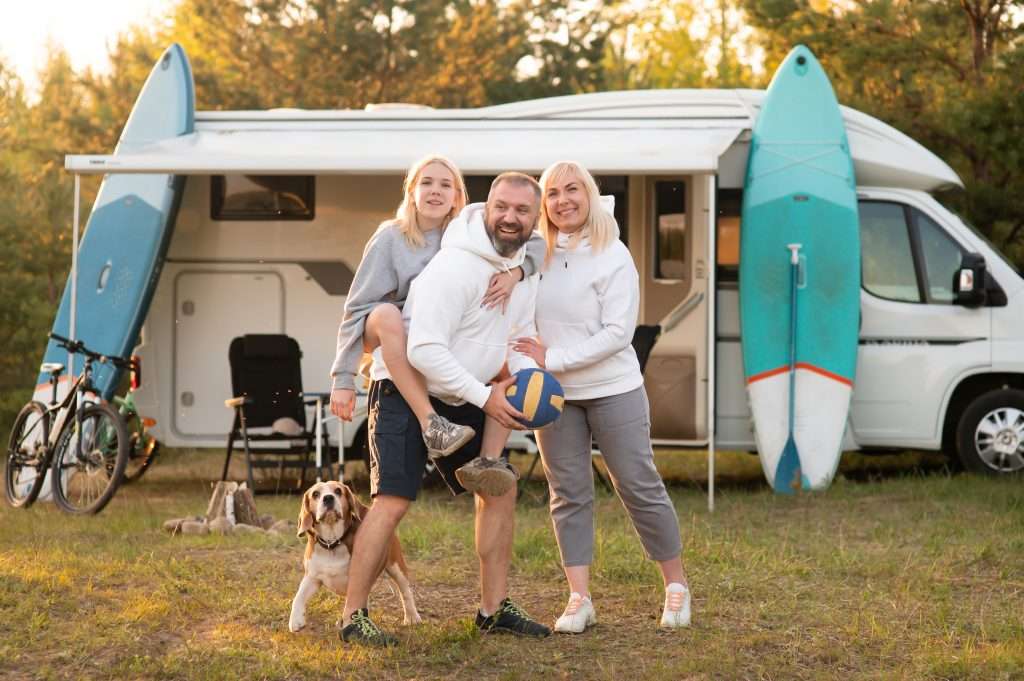Not every mobile home aspirant knows how to buy a mobile home with no money down. It may seem challenging, but it is possible with the right strategies and resources. This guide will walk you through the various methods, financial options, and tips to help you achieve your goal of owning a mobile home without an upfront payment.
The key is to get creative with financing, as traditional bank loans often require significant down payments for mobile home purchases. Seller financing, lease options, and leveraging equity in other properties are some of the best ways to buy a mobile home with no money down.
How to Buy a Mobile Home with No Money Down
Before embarking on the journey to buy a mobile home, it is essential to assess your financial situation. Determine your income, expenses, and credit score. Understanding your financial health will help you set realistic expectations and identify suitable financing options.
Setting a Budget
Establishing a budget is crucial when buying a mobile home. Consider not only the purchase price but also additional costs such as insurance, maintenance, and community fees. A well-defined budget will guide your search and prevent overspending.
Finding the Right Location
Choosing the right location is vital for your long-term satisfaction. Research various areas, considering factors such as proximity to work, schools, and amenities. Investigate the quality of mobile home communities, their rules, and the overall environment.
Researching Mobile Home Communities
Not all mobile home communities are created equal. Some offer luxurious amenities and tight-knit communities, while others might be less desirable. Visit several communities, talk to residents, and read reviews to find a community that aligns with your lifestyle and preferences.
“The dream of homeownership shouldn’t be out of reach,” says housing expert Sarah Jones. “Mobile homes with no money down options like USDA loans can be a great way for qualified buyers, especially in rural areas, to achieve that dream.”
Mobile Home Financing Options in 2024
Government-Backed Loans
FHA Loans
FHA loans, backed by the Federal Housing Administration, are a popular option for mobile home buyers. These loans typically require lower down payments and have more lenient credit requirements. However, they are only available for homes that meet certain standards and are on FHA-approved lots.
VA Loans
VA loans, available to veterans and active-duty service members, offer an excellent zero-down financing option. These loans come with competitive interest rates and do not require private mortgage insurance (PMI), making them an attractive choice for eligible buyers.
Personal Loans
Personal loans can be used to finance the purchase of a mobile home. These loans are unsecured and based on your creditworthiness. While they may come with higher interest rates compared to government-backed loans, they offer flexibility and can be obtained quickly.
Chattel Loans
Chattel loans are specifically designed for movable personal property, including mobile homes. These loans often come with shorter terms and higher interest rates than traditional mortgages but are easier to obtain and do not require land ownership.
Rent-to-Own Agreements
Rent-to-own agreements allow you to rent a mobile home with the option to purchase it at the end of the lease term. This option is beneficial for those who need time to improve their credit score or save for a down payment.
Seller Financing
In seller financing, the seller acts as the lender, allowing you to make payments directly to them. This option can be flexible and negotiable, often beneficial for buyers who may not qualify for traditional financing.
Zero-Down Payment Programs
VA Loans for Veterans
Veterans and active-duty service members can take advantage of VA loans, which offer zero-down payment options. The Department of Veterans Affairs is backing these loans, which have favorable terms and make homeownership more accessible to those who have served in the military.
USDA Loans for Rural Areas
USDA Rural Development Loans can be a valuable financing option for individuals looking to purchase eligible manufactured homes, including mobile homes, in rural areas. To qualify, the mobile home must be new, built within the last 12 months, and meet federal construction and safety standards.
Additionally, the mobile home must be installed on a permanent foundation and classified as real estate, not personal property. The property itself must be located in a USDA-designated rural area with a population under 35,000, and the applicant must meet the program’s income limits and other requirements.
The manufactured home must adhere to all federal construction and safety standards. If the mobile home is located in a mobile home park, the park itself must meet certain requirements and be USDA-certified.
State and Local Assistance Programs
Many states and local governments offer assistance programs to help residents buy homes with no money down. These programs vary by location and often provide grants, low-interest loans, or other financial assistance to eligible buyers.
Manufacturer Incentives and Promotions
Mobile home manufacturers occasionally offer incentives and promotions, such as no down payment or low-interest financing. Keep an eye on manufacturer websites and promotions to take advantage of these opportunities.
Improving Credit Score for Better Terms
Understanding Credit Scores
A credit score is a numerical representation of your creditworthiness. Lenders use this score to determine your ability to repay loans. Higher credit scores often result in better loan terms and lower interest rates.
Steps to Improve Your Credit Score
Improving your credit score takes time and effort. Pay bills on time, reduce outstanding debt, avoid opening new credit accounts, and regularly check your credit report for errors. Consistent, responsible credit behavior will gradually boost your score.
How Credit Score Affects Loan Approval and Interest Rates
Your credit score significantly impacts loan approval and interest rates. Higher scores make you a more attractive borrower, leading to better loan terms and lower interest rates. Conversely, lower scores may result in higher rates or loan denial.
Negotiating with Sellers
Strategies for Negotiating a Better Price
Effective negotiation can save you money. Research comparable homes, understand market conditions, and be prepared to make a reasonable offer. Highlight any needed repairs or upgrades to justify a lower price.
Asking for Seller Concessions
Seller concessions can reduce your out-of-pocket expenses. Request the seller to cover closing costs, make necessary repairs, or include appliances in the sale. These concessions can make the purchase more affordable.
importance of Home Inspections
A home inspection is crucial to identifying potential issues. Hire a qualified inspector to evaluate the mobile home’s condition, ensuring there are no hidden problems. Use the inspection report to negotiate repairs or a lower price.
Dealing with Private Sellers vs. Dealerships
Buying from private sellers can offer more flexibility in negotiations, while dealerships may provide more comprehensive warranties and financing options. Evaluate the pros and cons of each to determine the best fit for your needs.
Leveraging Trade-Ins
Trading in Your Current Mobile Home
If you already own a mobile home, consider trading it in to reduce the cost of a new one. Dealers often accept trade-ins, applying the value towards your purchase.
How Trade-Ins Can Reduce Costs
Trade-ins can significantly lower your out-of-pocket expenses. The trade-in value is deducted from the price of the new mobile home, reducing the amount you need to finance.
Assessing the Value of Your Trade-In
Determine the fair market value of your current mobile home by researching similar models and consulting with dealers. Understanding its value will help you negotiate a fair trade-in price.
Understanding Closing Costs and Fees
Common Closing Costs
Closing costs can include loan origination fees, title insurance, appraisal fees, and taxes. These costs add up and can be a significant expense at the time of purchase.
How to Minimize or Eliminate Closing Costs
Negotiate with the seller to cover some or all closing costs, or explore loan programs that offer assistance with these fees. Some lenders may also offer no-closing-cost loans, although these often come with higher interest rates.
The Role of Title Insurance
Title insurance protects against potential legal issues with the property’s ownership. It is a one-time fee paid at closing and provides peace of mind by ensuring you have a clear title to your mobile home.
Common Mistakes to Avoid
Skipping the Home Inspection
Skipping a home inspection can lead to costly surprises. Always invest in a thorough inspection to identify potential issues before finalizing the purchase.
Not Comparing Financing Options
Failing to compare financing options can result in higher interest rates and unfavorable terms. Shop around and consider multiple lenders to find the best deal.
Overlooking Community Rules and Fees
Each mobile home community has its own rules and fees. Understand these before purchasing to ensure they align with your lifestyle and budget.
Ignoring Maintenance Costs
Mobile homes require regular maintenance. Budget for ongoing repairs and upkeep to avoid unexpected expenses.
Legal Considerations
Understanding Zoning Laws
Zoning laws dictate where mobile homes can be placed. Ensure your desired location complies with local zoning regulations to avoid legal issues.
Lease Agreements and Land Ownership
If your mobile home will be on leased land, carefully review the lease agreement. Understand the terms, fees, and responsibilities to avoid future disputes.
Legal Protections for Buyers
Familiarize yourself with state and federal laws that protect mobile home buyers. These laws can provide recourse in case of fraud or misrepresentation.
FAQs
Can I buy a mobile home with bad credit?
Yes, it is possible to buy a mobile home with bad credit, though it may be more challenging. Explore options like personal loans, rent-to-own agreements, and improving your credit score to enhance your chances.
How long does the mobile home buying process take?
The process can vary widely, from a few weeks to several months, depending on factors such as financing approval, home availability, and inspection timelines.
How do I buy a mobile home park with no money?
To buy a mobile home with no money down, one strategy is to get seller financing. Many mobile home parks are owned free and clear, so the seller may be open to financing the sale themselves. By convincing the seller that you will make the monthly payments and operate the park well, you can offer terms that minimize their tax liability. This approach allows you to take over the park immediately and start generating income without needing a large down payment.
If you own another property, you may be able to use the equity as collateral for a loan to purchase the mobile home park. This allows you to buy the park with little or no cash out of pocket. USDA Rural Development Loans are another option to consider. These loans are designed for low-income families and can be used for mobile homes. They offer 100% financing with no down payment required, as well as flexible credit guidelines.
Recap of Key Points
How to buy a mobile home is a burning question in the minds of potential owners. It involves exploring various financing options, improving your credit score, and negotiating effectively. Understanding the process and available resources can make homeownership more accessible.
Don’t let perceived obstacles demotivate you. With the right approach and persistence, owning a mobile home without an upfront payment is achievable. Owning a mobile home offers numerous benefits, from affordability to flexibility. By leveraging available programs and strategies, you can achieve your goal of homeownership without a significant initial investment.



Pingback: The Financial Roadmap To Building A New House In 2024 - The Home And Town